
Alumni on the Move
COVID-19: UCT-Africa Virtual ENT changes the face of academic meetings and ward rounds
Medical trainees in many African countries share similar circumstances: patient profiles, disease spectrums, resource allocations and often, institutional conundrums. Taking pride in this becomes a necessary prerequisite to allow both a culturally and resource-sensitive patient approach. While receiving information through webinars and guidelines from more developed centers holds value, the importance of discussing practicalities on the ground by healthcare practitioners within the same continent is immeasurable. Recognising this especially during the tumultuous time of a pandemic has given birth to our platform that holds immense potential to cut across institutional and national divides.
The COVID-19 virus has changed the way we see but also practically, the grain of our homes, working environments and learning institutions. For trainees, there has been a dramatic reduction in patient contact and social distancing practices have eliminated physical academic meetings and teaching ward rounds. This has tested traditional experiential learning to the core. In these unique times, the challenge for adaptability arises. Videoconferencing towards academic pursuit may represent a novel defiance that may alter how medical trainees learn and collaborate, forever.
In order to adapt to the aforesaid COVID-related challenges, the Division of Otolaryngology (ENT) at the University of Cape Town (UCT) has adopted Zoom© videoconferencing for our academic presentations and introduced virtual academic ward rounds. It is a trainee-led initiative that aimed to maintain learning amidst exceptional and strenuous times. Recognizing the commonality of current circumstances with the suspension of many training programs, we went a step further by establishing a new online academic program coined UCT-Africa Virtual ENT that provided open access to our academic presentations and virtual academic ward rounds to all ENT departments in South Africa. With an overwhelming response and positive feedback, this initiative was expanded to the rest of Africa. The aims of UCT-Africa Virtual ENT have been simple: to cut across academic silos so typical of centers of academic learning, to promote institutional, national and international collaboration, to maintain educational goals during the pandemic whilst daring to re-imagine innovative ways for learning, long-term.
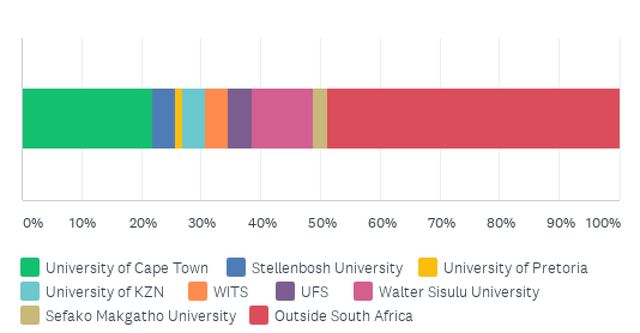
Since the establishment of UCT-Africa Virtual ENT in April 2020, 177 different participants have attended ranging from general Doctors with an interest in ENT to sub-specialized Consultants from all around the continent, with an average of 80 participants per meeting. It has been exceptionally rewarding to listen to trainees and specialists from different institutions that has proven to be a positive cue for constructive, patient-focused discussion. This has almost instantly created a sense of common purpose across Africa, especially needed in current times. Zoom© was selected as its limited bandwidth makes it suitable for countries with limited internet capacity. Patients’ confidentiality is maintained, and they are consented to allow public sharing of photographs and clinical details on the platform.
A survey was conducted to assess the value of UCT-Africa Virtual ENT, as well as how to improve it. With 79 respondents, the survey revealed that all 8 South African ENT training centers had participated. Trainees from other African countries made up 49% of attendees and countries represented included: Zimbabwe, Ethiopia, Ghana, Tanzania, Uganda, Kenya, Malawi, Libya, Democratic Republic of Congo, Rwanda, Nigeria, Mauritius and Namibia (Figure 2) as well as the United Kingdom, Switzerland and Canada.
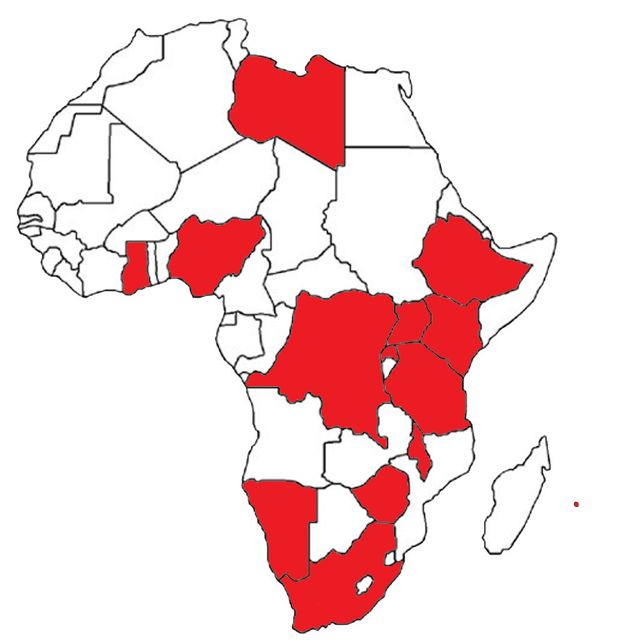
Participants accessed the meetings using multiple devices including tablets, mobile phones and computers with 82% using their personal data. Over 90% of respondents stated that their training had been compromised by the COVID-19 pandemic, and 97% found learning on a virtual platform beneficial. The convenience of access was demonstrated with attendees logging in from their personal residences, hospitals, university libraries and even from their cars. Almost 90% agree that that cross-institutional virtual academic meetings should be formally incorporated into their training programs. In response to the request from trainees with different time zones and schedules, the decision to upload recordings of some sessions on a free public platform was undertaken. UCT-Africa Virtual ENT now has a YouTube© channel.
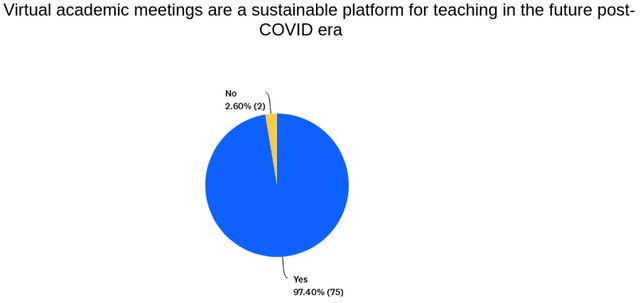
More than 97% agreed that this platform would be sustainable post-pandemic (Figure 3) Interestingly, 67% of survey respondents noted that virtual platforms such as UCT-Africa Virtual ENT had the potential to replace physical meetings and conferences. All respondents stated that the virtual meetings were very valuable or extremely valuable to their training (Figure 4).
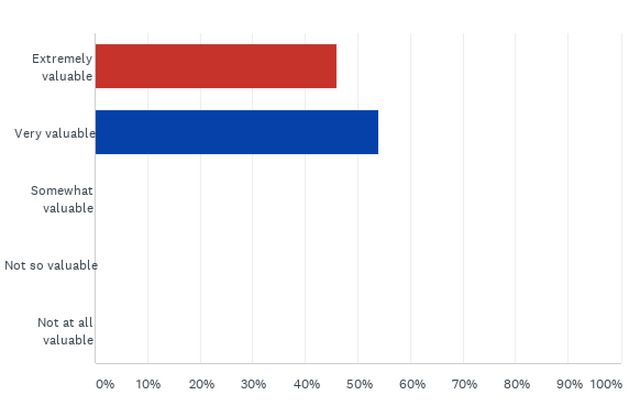
An inexpensive, convenient and fast way to hold academic meetings can make great strides to bridge academic gaps in training programs, and is especially relevant in the milieu of our continent. UCT-Africa Virtual ENT has taken the initiative to provide an opportunity to transcend traditional educational barriers and to promote free access to learning and inter-institutional collaboration across Africa and beyond. Platforms such as ours have the potential to save huge costs whilst maintaining the aims of congregational learning and presentations. Looking into the future, the way that we see scientific learning and networking through professional conferences may change drastically. There may be no better time to re-imagine ‘new normals’. Overall, we believe this unprecedented time has shown us opportunities within a crisis that otherwise may never have been considered. It has paved the way for innovative collaborative learning, and begs us to re-imagine a future with fewer national divides promoting better patient care in a contextually sensitive manner within our spirited continent.
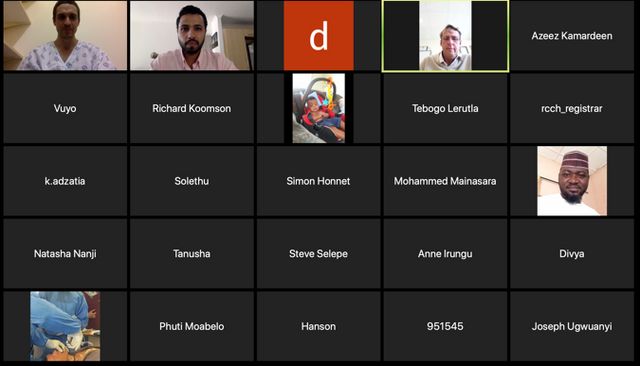
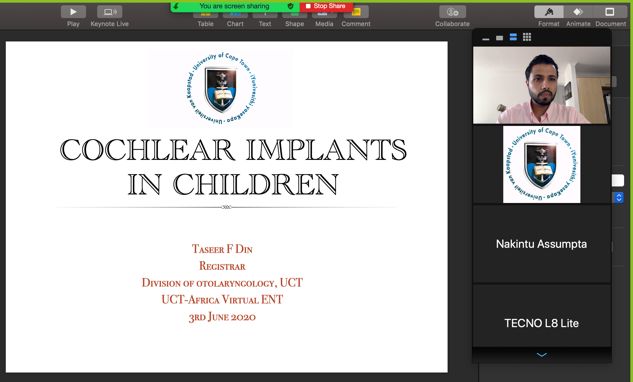
Developing World ENT, University of Cape Town website link: http://www.entdev.uct.ac.za/education_material/of-developing-world-interest







